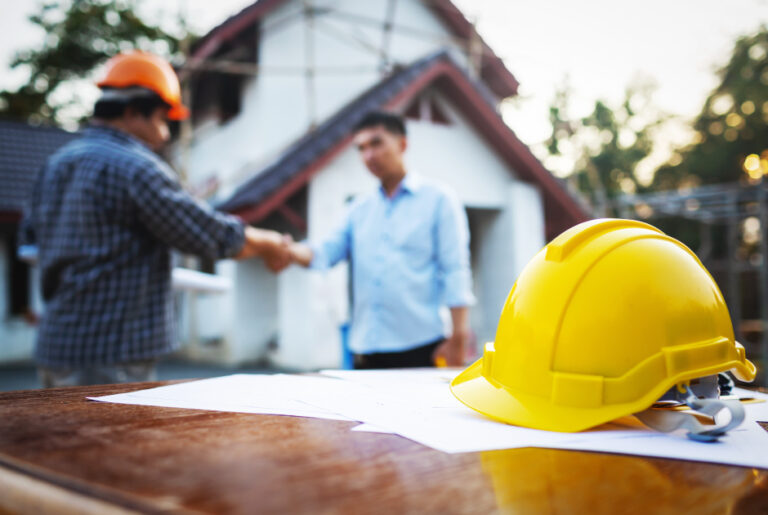Hiring someone to handle both the design and construction of your home or commercial project might seem like a shortcut to less stress, but it’s not a decision to take lightly. The right design-build contractor can save you time, money, and hassle. The wrong one? That can lead to costly delays, miscommunication, and regret.
So how do you actually choose the right contractor for the job?
It’s not about flashy websites, fancy sales pitches, or who claims to be the fastest. It’s about digging into what really matters, asking the right questions, and trusting the process, not just the promises.
First, Understand the Design-Build Difference
Before anything else, make sure you’re clear on what a design-build contractor actually does. Unlike traditional setups where you hire a designer and then a builder separately, design-build teams handle both parts under one roof. That means one contract, one timeline, one team.
This can be smoother, but only if the team is truly capable on both sides: design and construction. A strong design-build firm should balance creativity with practicality. They need to design with cost and execution in mind from the very beginning.
Why Reputation Isn’t Enough
Yes, reputation matters. But it’s not the full story.
Just because a contractor has been around for 20 years or has a handful of glowing reviews doesn’t mean they’re right for your project. What kind of work have they done? What size of projects do they typically handle? Do they have real experience in the type of build you’re planning?
It’s easy to get swayed by personality or promises. But real results come from clear systems, solid communication, and proven experience—not just a friendly handshake.
Here’s where to dig deeper.
Key Things to Look for in a Design-Build Contractor
1. Project Fit
Do they specialize in the type of work you’re hiring them for? Someone who mainly does commercial builds might not be the best pick for a custom residential project—and vice versa.
2. Transparency from Day One
They should walk you through budgets, timelines, and process clearly before anything is signed. Look out for vague language or reluctance to provide detailed breakdowns.
3. In-House Capabilities vs. Subcontractors
Ask how much of the work is handled in-house versus outsourced. This gives insight into how much control they have over quality and scheduling.
4. Communication Style
How responsive are they? How clear is their process? You want a team that’s proactive, not just reactive.
5. Design Quality
Ask to see past designs. Not just pretty pictures—real architectural drawings. Do they reflect your style? Are they functional? Do they show understanding of local codes and construction best practices?
6. License and Insurance
Always verify that the contractor is fully licensed, bonded, and insured. Skipping this check can come back to bite you in a big way.
7. Collaborative Mindset
You want a contractor who is open to your input but also confident enough to make recommendations. It’s a balance between listening and leading.
If you’re searching for design build contractors near me, don’t just click the top result. Compare options, look for depth in their experience, and ask real questions before moving forward. Also, make sure they’ve successfully handled projects similar in size, style, and complexity to yours.
Don’t Skip the Interview Process
Treat this like hiring for a critical role because that’s exactly what it is. You’re bringing someone into your life, possibly for many months, and trusting them with a major investment.
Ask questions like:
What’s your approach to budget changes once construction starts?
Who will be my point of contact day to day?
How do you handle permits and inspections?
What happens if there are delays or supply issues?
Can you walk me through your typical timeline, from design to final walk-through?
The more specific the questions, the better. A good contractor won’t just answer—they’ll welcome the conversation.
Red Flags to Watch Out For
Sometimes, what people don’t say tells you more than what they do. Keep an eye out for:
- Evasive answers – If you ask for examples or process details and get vague replies, that’s a concern.
- Pressure to sign quickly – A rush to close the deal is a sign of poor planning or desperation.
- Unclear pricing models – You should know exactly what’s included and how changes will be handled.
- No recent or relevant projects – Past work should be similar in scope and scale to what you’re planning.
Don’t ignore your gut. If something feels off, it probably is.
What a Good Partnership Looks Like
The best design-build relationships are built on trust, mutual respect, and regular check-ins. You should feel informed, heard, and confident as your project moves forward. That doesn’t mean everything will go perfectly, but issues should be addressed openly and solutions brought to the table quickly.
You’re not just hiring a team to build a space: you’re choosing people to guide a process that involves your money, your time, and your vision. That decision deserves your full attention.
Final Checklist: Before You Commit
Here’s a quick rundown of what to confirm before signing on:
- They’ve handled similar projects before
- You’ve reviewed full past project plans and portfolios
- Licensing, bonding, and insurance are up to date
- They gave a clear, itemized estimate
- They walked you through the timeline
- You know who your main contact is
- They answered your questions thoroughly
- You feel comfortable with their communication style
If all of these are checked off, you’re in a strong position to move forward with confidence.
Make the Right Call From the Start
Building anything meaningful starts with a solid foundation. And in this case, that foundation is your choice of contractor.
Take your time. Ask better questions. Dig past the surface.
The right design-build team won’t just deliver a finished product. They’ll make the process smoother, the decisions clearer, and the final result stronger. That’s worth the effort.


